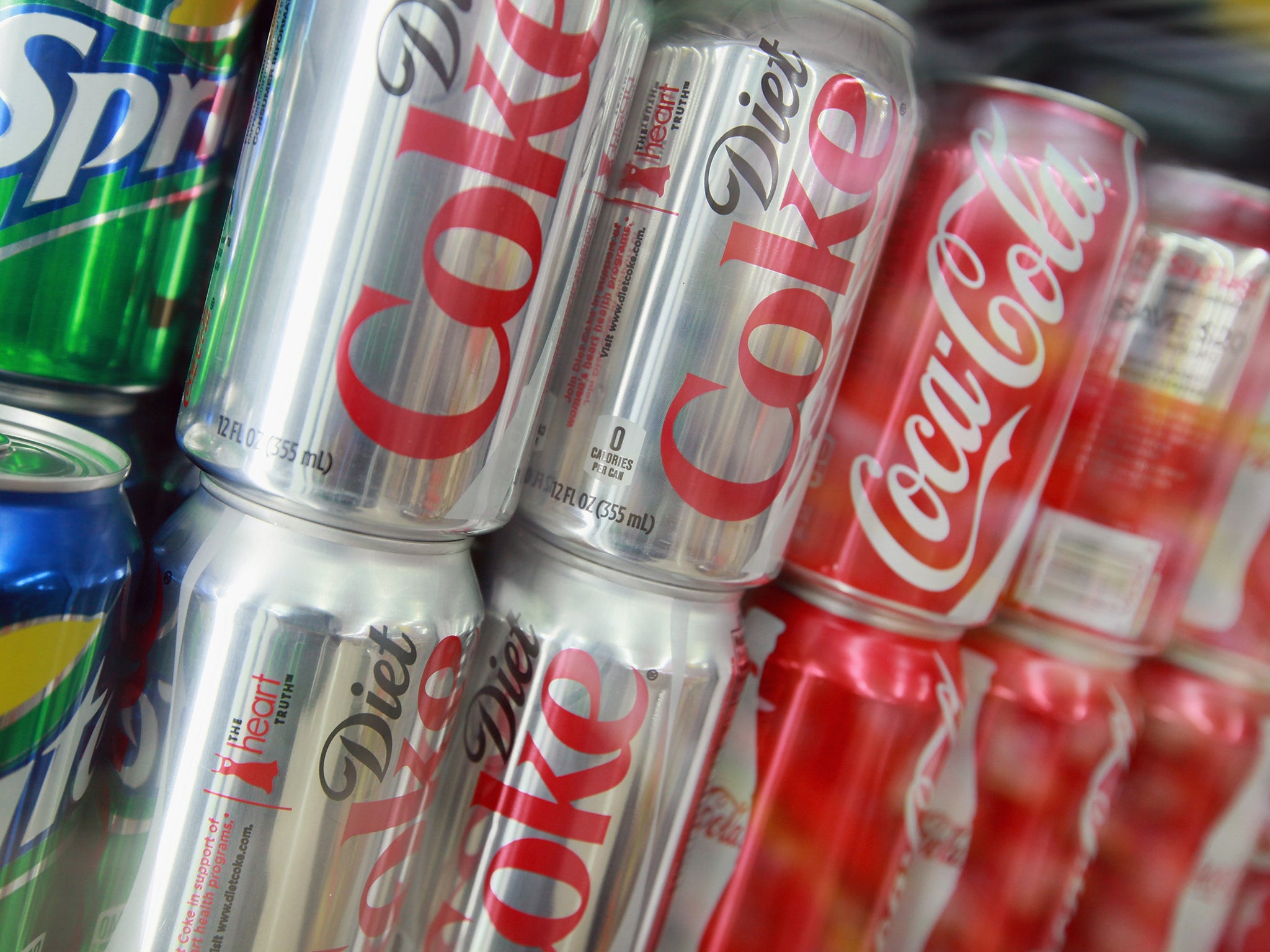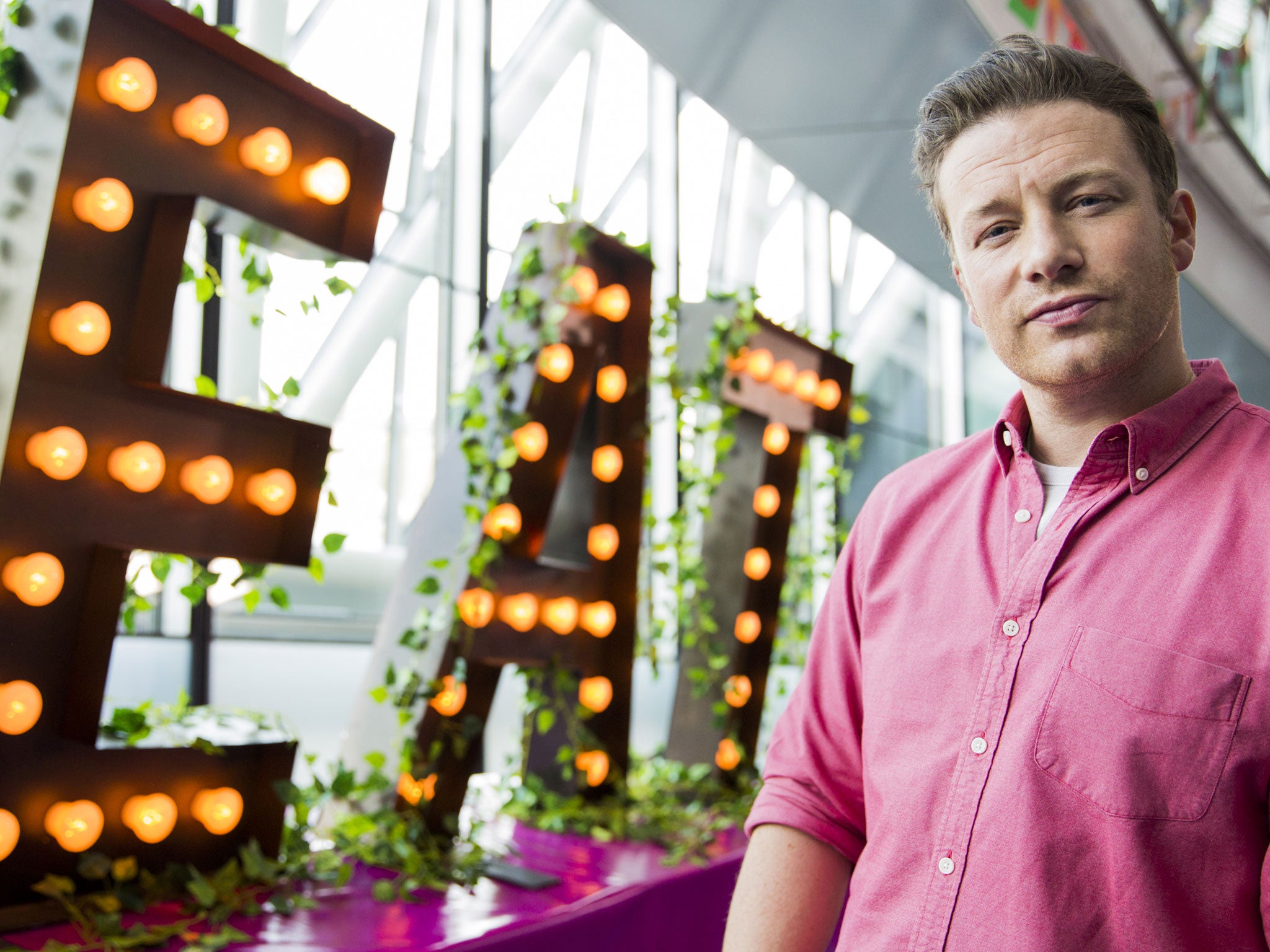Doctors join Jamie Oliver's call for 20 per cent tax on sugary drinks
The British Medical Association wants levy to be used to reduce costs of fruit and vegetable in effort to tackle obesity in the UK

A 20 per cent tax should be imposed on sugary drinks to tackle Britain’s obesity programme, according to doctors’ leaders.
The British Medical Association joined a growing campaign in favour of a ‘pop tax’, claiming the levy could reduce obesity in the UK by around 180,000 people, but Downing Street played down the calls.
It should be a “useful first step” towards a long-term goal of taxing a wide range of products, the BMA said and the money raised from the sugar tax should be used to cut the cost of fruit and vegetables.

The campaign to introduce a ‘pop tax’ has the backing of celebrity chef Jamie Oliver, who is bringing in his own charge of 10p on all sweet drinks served in his Jamie’s Italian restaurants.
He wants the money raised from imposing a levy on all sugary drinks to go towards educating children about healthy lifestyles.
However the Taxpayers’ Alliance said the move would send Britain down a “slippery slope” and would hit the poorest hardest, while a spokesperson for the Prime Minister said: "We set out our views last month and we haven't really changed."
However Mr Hunt's colleague – the life sciences minister George Freeman - became the first member of the government to support a tax on sugary drinks following the election, saying food companies had a responsibility to cut down on the amount of sugar in their products and suggested that failure to do so could lead to penalties.
The report, authored by the BMA's board of science chairwoman Professor Sheila Hollins, said it would also like to see a ban on all marketing of unhealthy food and drink products to children and young people, adding that a "particular area of concern is the proliferation of marketing online and via social media".
Ms Hollins said: "Doctors are increasingly concerned about the impact of poor diet, which is responsible for up to 70,000 deaths a year, and has the greatest impact on the NHS budget, costing £6 billion annually.
"While sugar-sweetened drinks are very high in calories they are of limited nutritional value and when people in the UK are already consuming far too much sugar, we are increasingly concerned about how they contribute towards conditions like diabetes.
"We know from experiences in other countries that taxation on unhealthy food and drinks can improve health outcomes, and the strongest evidence of effectiveness is for a tax on sugar-sweetened beverages. If a tax of at least 20% is introduced, it could reduce the prevalence of obesity in the UK by around 180,000 people.
"We know that the majority of the UK population, particularly low income households, are not consuming enough fruit and vegetables, so financial measures should also be considered to subsidise their price, which has risen by 30% since 2008.”
But Jonathan Isaby, chief executive of the TaxPayers' Alliance, said: "It is deeply concerning that the British Medical Association Association is describing what would be a regressive tax, hitting the poorest hardest, as a 'useful first step.' It is clear that a Sugar Tax would signal a descent down a very slippery slope. Levies like this have been tried elsewhere, such as in Denmark, and haven't worked.
"Rather than listen to the self-appointed High Priests of the Nanny State, the Government should let the numerous other programmes they have put in place around education and information bed in. Changes to Britain's diets will happen via a long-term cultural shift, not by hiking the cost of living."
Join our commenting forum
Join thought-provoking conversations, follow other Independent readers and see their replies
Comments
Bookmark popover
Removed from bookmarks